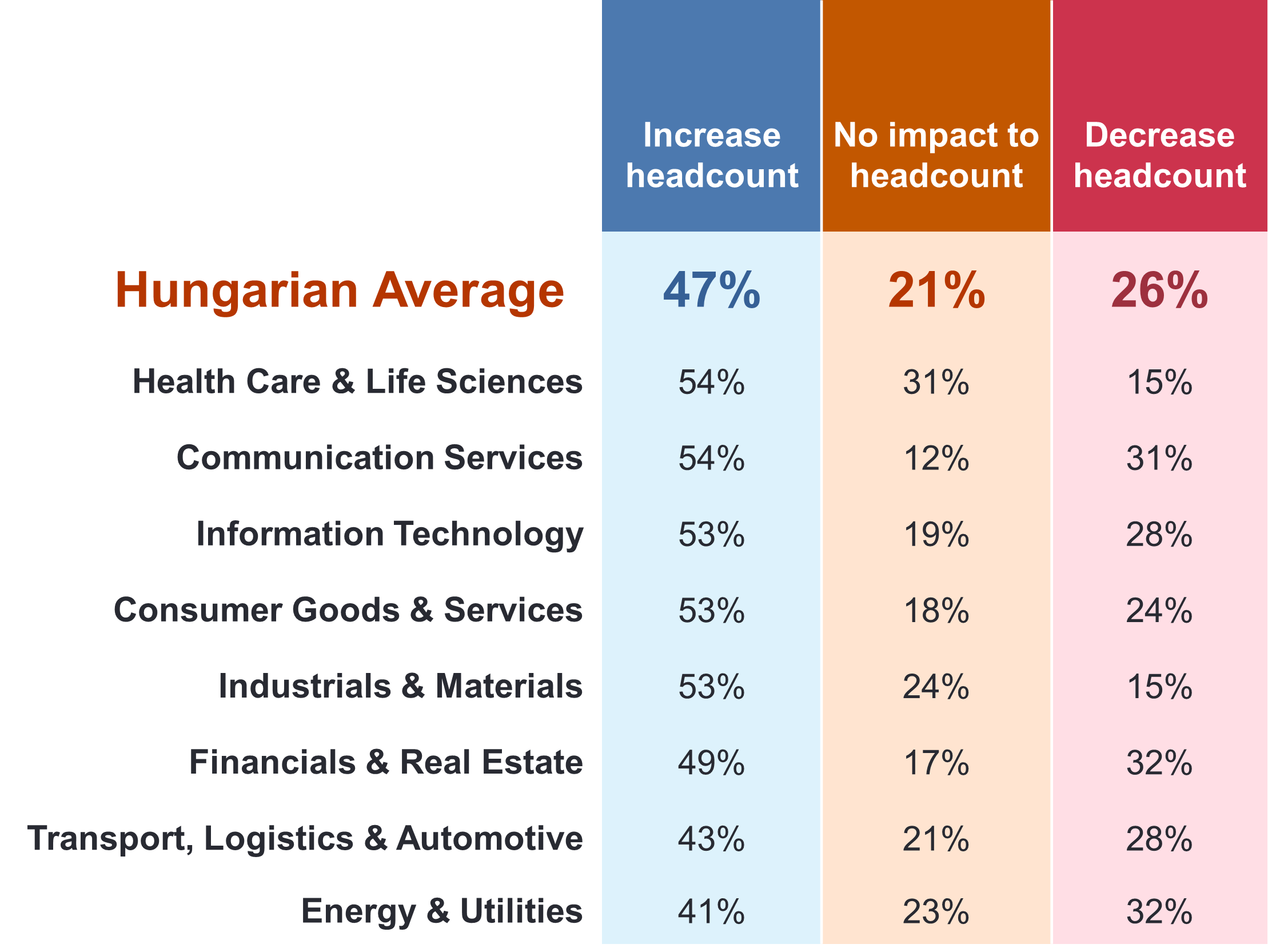
The application and impact of AI on the labor market
This time, the variable part of the survey asked, among other things, to what extent respondents use new technologies (artificial intelligence (AI), machine learning, virtual reality) in their own companies.

It is not surprising that Hungary is a bit behind in the application of the new technologies compared to the global trends. The global average is 48%, while 39% of domestic companies said they have already adopted AI, including Machine Learning. This is only a 3% increase when compared to employers’ responses one year ago (35%).
Employers locally and globally strongly agree on the impact of AI to work. Theyed revealed that AI optimism varies by seniority. There is a 12-14-point-gap between senior leadership and frontline workers. Factory floor and frontline workers are least optimistic about AI.
Among the challenges of AI adoption the three leading difficulties – in different orders – are the same worldwide: these are related to cost, lack of AI skills and privacy.

It is not possible to talk about the application of artificial intelligence without discussing the impact of widespread adoption on the workforce. In Hungary, employers are more pessimistic in this matter and there are more significant differences between industries in terms of expectations.
Employers globally – including Hungary as well – have found that improving technology tools and emphasizing well-being are the top two drivers in boosting engagement and productivity of their newer workforce, therefore employers can not neglect the implementation of the new technologies.




